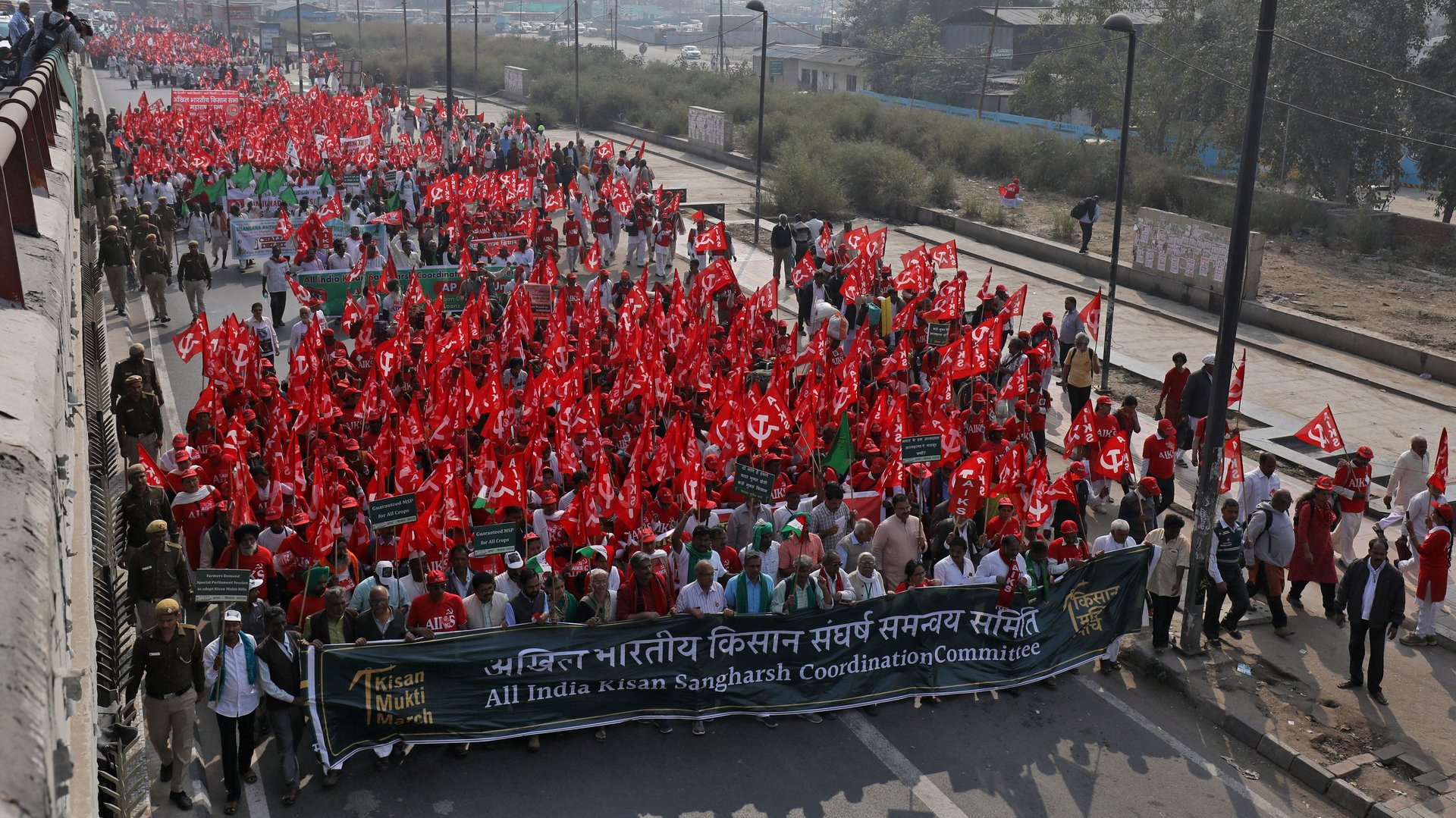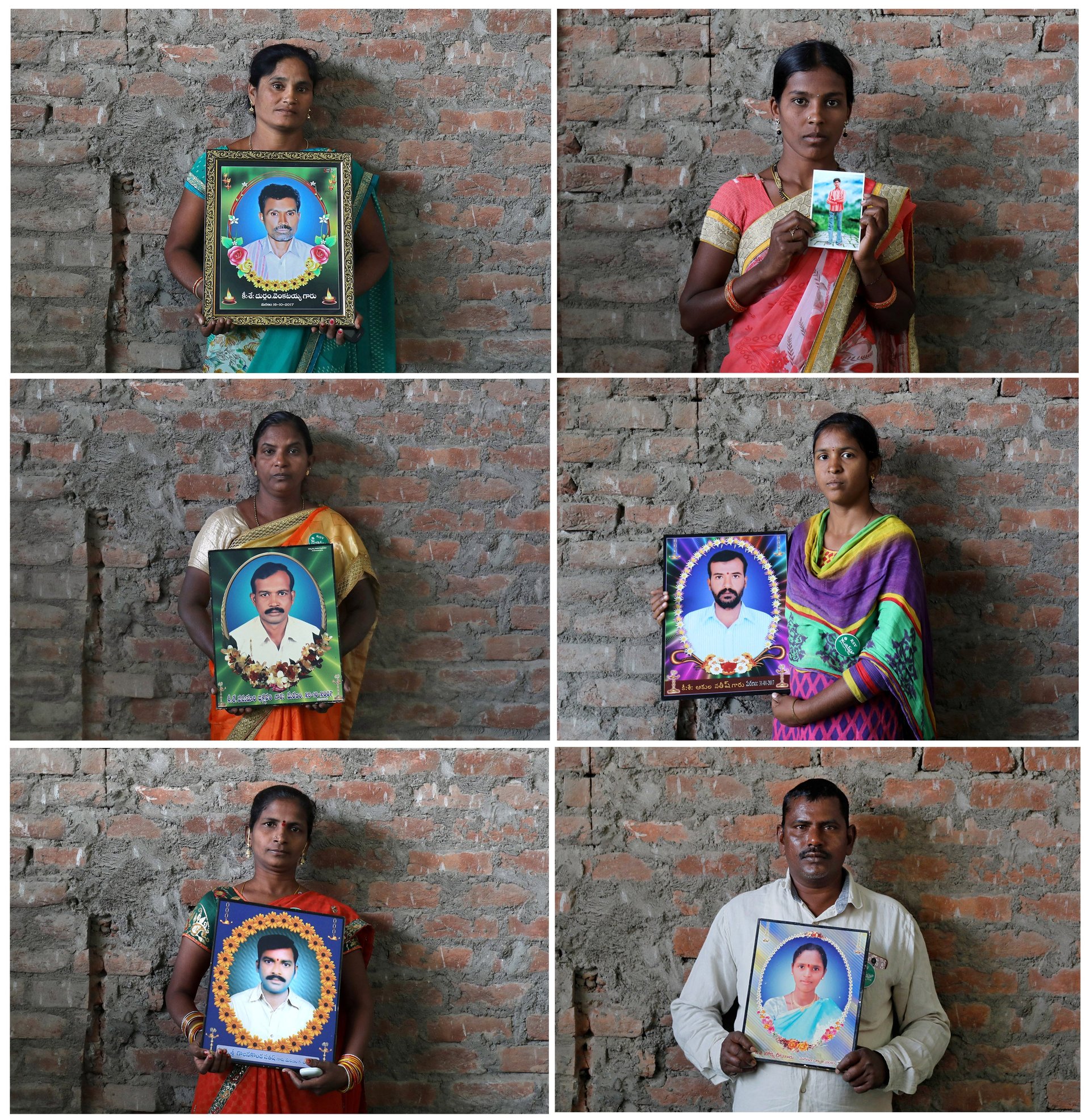Why I lied to my landlord to join the thousands of farmers protesting in Delhi
Dimanti Devi, 45, is a landless farmer from South Dumri, a village in Samastipur district of the northern Indian state of Bihar.


Dimanti Devi, 45, is a landless farmer from South Dumri, a village in Samastipur district of the northern Indian state of Bihar.
She is one of the thousands of farmers marching today (Nov. 30) in New Delhi, seeking a special session of the Indian parliament to discuss the agrarian crisis in the country’s hinterlands. Among their demands are a full-loan waiver and a higher base price on farm produce.
Though agriculture accounts for 17.32% of the Indian gross domestic product, employing more than 50% of the population, the years of rot in the sector have taken a toll on the countryside. So much so that 45 farmers commit suicide every day.
According to the census of India, 47.3% of the farmers in the country are landless tillers. They cultivate crops on land they do not own, for wages or a portion of the harvest. Dalit (formerly the untouchable community) farmers, 71% of whom are landless, suffer more, as government welfare schemes tend to focus on landowning farmers. And women, whom the state does not recognise as farmers, are the worst off.
Devi, a Dalit landless farmer, tells her story.
I should not be at this protest. I have told the upper caste Thakur family who I work for that I’m visiting my maternal home.
I don’t like working for them, but my family lives and farms on their land. Before I was born, the Ganga river ate away the land we owned on its banks. So we have been staying in a hut on a Thakur’s property.
My husband and I live with our three sons, aged 15, 13, and 11. We married off our teenage daughter last year, after taking a Rs50,000 loan from the Grameen Bank (without collateral) for her wedding and dowry. There is no way we will be able to repay that.

I earn Rs100 every day from cleaning the three-storeyed house of the Thakurs and their cowsheds. I don’t wash their utensils, though. My husband assists them on their fields. We both work seven days a week. I did not get paid during note-bandi (demonetisation), because the Thakurs said they had to deposit all their money in the bank.
We grow wheat and maize on a small tract, and split its harvest with the landowners. Our share in a season is less than 100 kilograms. In August, however, our maize crop got flooded in the rains. We had borrowed the money for the seeds from a village lender.
In June last year, we also bought two young buffaloes for cheap. They are not giving milk yet, but one of them is pregnant. If I could, I would stay at home and look after them.
But whenever I have tried to quit the cleaning work, the Thakurs tear down our house and ask us to leave. The panchayat says we have to find another place to live if they don’t want us on their property. So I have no choice but to keep going back to them. They would be furious if they found out that I lied and came to this protest.
The government is supposed to give me 900 square feet of land. That is why I have travelled four days to come to Delhi. My sons are living cooped up in the small house. We don’t even have electricity.
If I got the land, I would build a house with six rooms. I would leave the cleaning work, and focus on our buffaloes. But I don’t wish to go back to agriculture. There is no profit in it.
As told to Kuwar Singh. We welcome your comments at [email protected].